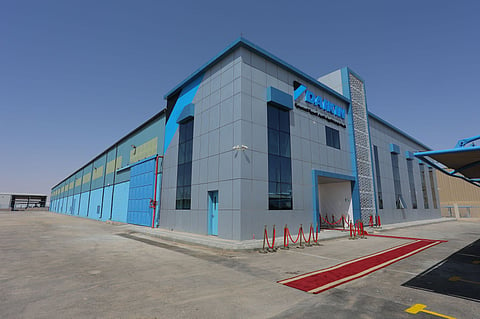Daikin Expands its Footprint across ME
Daikin Industries, Ltd., the leading global manufacturer of Heating, Ventilation, Air Conditioning & Refrigeration (HVAC-R) solutions, is now expanding its footprint across the Middle East and Africa (MEA) in line with its Fusion25 five-year growth plan.
With a focus on sustainability and localization, Daikin seeks to grow its footprint across residential, commercial, and industrial applications as it supplies the region’s leading hotels, malls, commercial buildings with innovative and sustainable solutions.
Qatar Airways Signs Sustainable Aviation Fuel Agreement with Gevo
In the last 10 years, following MEA HQ in Dubai, Daikin established entities in KSA, Egypt, and Qatar, sales offices in Nigeria and Morocco and reached 600 employees covering the region, and a sales network of more than 100 independent distributors.
As part of its localization drive, Daikin recently opened its second regional manufacturing facility after Jebel Ali, Dubai and first factory in the Kingdom of Saudi Arabia.
Tuna Gulenc, VP of Daikin Middle East and Africa, said: “At Daikin Middle East and Africa, we are committed to fuelling local economies, empowering local talent, and investing in initiatives that support carbon emissions reductions as we expand our regional footprint."
In line with the net zero ambitions of regional governments, Daikin plans to achieve a 30% reduction in net greenhouse gases by 2025 and carbon neutrality by 2050, according to its Environmental Vision.
As of 2021, Daikin achieved a 10% reduction rate of net greenhouse gases demonstrating that the company is on track to achieve its targets.
To support its environmental goals, in June of this year, the company launched a new solar plant at its headquarters in Dubai which will help Daikin reduce its carbon emissions by over 300 tonnes annually in line with Dubai’s Carbon Abatement Strategy 2030.
Read more: First Flight to Use Sustainable Aviation Fuel Takes off from Tokyo


